Government:
Democratic, republican form of government. Independent since 1847.
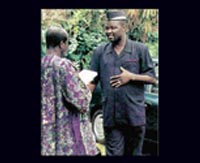
Minister J. Mulbah
Information & Tourism
Legal system:
Dual system of statutory law, based on Anglo-American common law for the modern sector, and customary law based on unwritten tribal practices for indigenous sector.
Political Achievements:
- First Republic in Africa
- Oldest Democracy on African continent
- Initiated OAU: Organisation for African Unity
- Initiated ADB: African Development Bank
- Co-initiated: Ecowas: Economic West African Association
- Co-initiated: Ecomog: West African Peace Keeping Force
Average income:
US-$ 200 per month
National production 1998:
US-$ 2.8 billion
External Dept 1998:
US-$ 2 billion
Electricity:
330.000 kw
Electricity use:
143 kwh pp
|
|
LIBERIA IN BRIEF
Liberia lies north of the equator on the western bulge of Africa with a land area of 43.000 square miles (113.370 square km) and a coastline of 350 miles (560 km).
A lowland belt bordered generally by sandy beaches; watered by shallow lagoons, tidal creeks, and mangrove marshes, stretching some 25-50 miles wide, makes up the coastland. Parallel to this coastland emerges a generally outcropping topography of undulating plateaux, some rising 1500-2000 feet, partly covered with grass and dense primeval forests. This outcropping characteristically extends north into the mountains with more or less typical flora. Inland rivers and creeks abound, the major rivers making natural regional boundries. Mano river borders with Sierra Leone in the (north)west and Cavally River with Ivory Coast to the (south)east. The country faces Guinea to the north and south is the blue Atlantic Ocean.
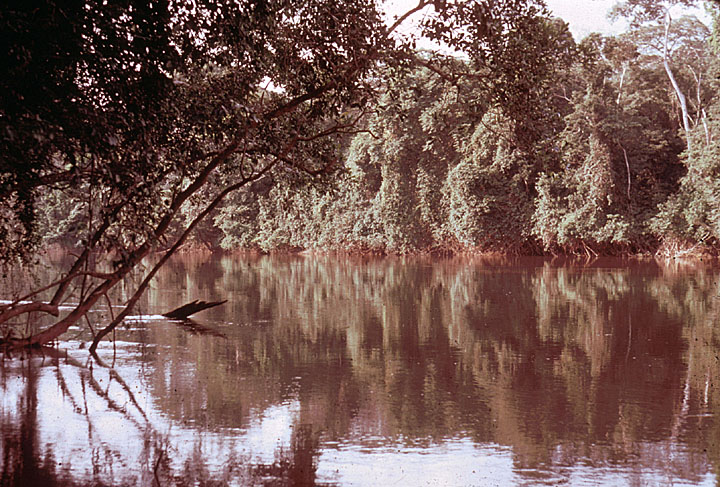
Cavally River
©2002: Africa Focus
|
BUSINESS
For the businessman, there are major investment opportunities which include a wide range of inducements (tax incentives and protection for infant industries). The trade and investment climate is very positive. Liberia welcomes partnerships for progress in industry, mining, trade, agriculture and (information) technology. Liberia offers a free enterprise economy, convertable currency, and very liberal foreign exchange policies.
FLORA AND FAUNA
Liberia, together with adjoining Sierra Leone and Côte d'Ivoire, includes the greatest of Africa's evergreen forests.
There are about 235 species of trees; 90 varieties are present in potentially marketable quantities, including mahogany
and ironwood. The bombex (cotton tree), the oil palm, and the kola tree are common. The wild rubber tree
(Funtumia elastica) is indigenous, but the cultivated Hevea brasiliensis is the source of Liberia's commercial rubber.
A variety of coffee peculiar to Liberia, Coffea liberica, was formerly common but has given way to the preferred
Coffea robusta. Fruit trees include citrus varieties, the alligator apple, papaya, mango, and avocado. Pineapples
grow wild. Among the cultivated plants are cassava, cotton, cacao, indigo, and upland rice.
Elephant and buffalo, once common in Liberia, have largely disappeared, but several species of antelope are found in
the interior; two of these, the white-shouldered duiker and the zebra antelope, are peculiar to Liberia. A lemur
called Bosman's potto and several species of monkey, including the long-haired and the Diana, are found in the forests.
Wild pigs and porcupines exist in sparsely settled areas, and several members of the leopard group are also found.
Most of the 15 species of snakes are venomous. Termites build lofty nests throughout the country. In some areas
the tsetse fly is found, and driver ants and mosquitoes are common. Several varieties of snail act as hosts in the
propagation of certain enteric diseases. Among the birds are the hornbill, wild guinea fowl, cattle egret (cowbird),
flamingo, woodpecker, and weaver.
|
|
MADE
IN
LIBERIA
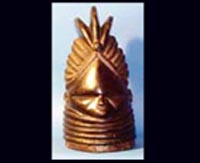
hand carved masks
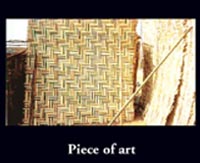
plaited bamboo screens
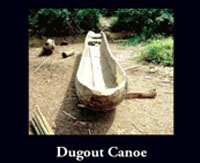
dugout canoo
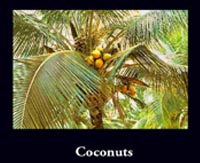
coconuts
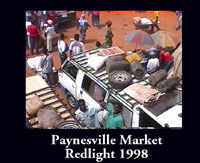
unique markets in Monrovia & Voinjama
|